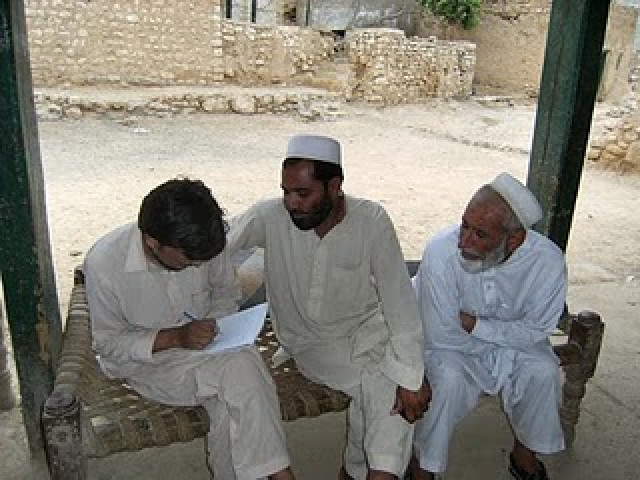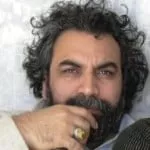“Herein lies the tragedy of the age: not that men are poor - all men know something of poverty; not that men are wicked - who is good? Not that men are ignorant - what is truth? Nay, but that men know so little of men.”
W.E.B.Du Bois, Souls of the Black Folk
The idea of 'know thyself' as the highest good offered by Socrates and immortalized by its inscription at the Delphic oracle has always been an easier said than done axiom of human existence. How do we know ourselves? How do we know others? Do we meet the other beyond good and evil or we always compartmentalize human capacities into ostensible yardsticks developed by time-ridden ideas born to be transitory?
Compartmentalization of other individuals and groups into black and white, into true and false, into good and evil, making it easy to issue verdicts but very difficult to do justice. In such quests for righteousness we always forget that all the ideals human beings follow are destined to decay. Ours will have the same fate. It is humanity alone that survives.
Are you human?
Humanity is the most often and yet ill-defined precondition of our existence on this planet. Now how do we define humanity? Is there a certain way, a method? For many there is, but for a few there isn’t. Let us talk about those who defy the orderly definition of humanity - who think being human is the greatest good unto itself. Living humanely and letting others live a human life is the ultimate act of humanity. This very emotion gives birth to the noble human capacity to do good to the point of sublimation, of achieving the greatness to forgive and forego. To forgive the mistakes of others, mistakes that might be a simple difference of perception, or even something not easy to digest within a given time and space dispensation, the environment in which we are born and brought up, the culture, our heritage and our identity.
What we need to let go
From this point onwards the journey of sublimation enters the phase of foregoing. Of unlearning what we cherish as heritage, as culture. Every humane movement in the history of mankind has this distinct feature as the cornerstone of its development. Those who cannot unlearn are incapable of innovation. And those who can’t innovate perish. They cling to worn out ideas till the ideas have worn them out. Iqbal prophetically said in his lectures “worn out ideas are never risen to power in a society that has worn them out.”
Pakistan: the battle of ideas
Now the dilemma of our nation also lies partially in this crisis of identity. Though no single factor could be cited as an ultimate reason for good or evil even for a single individual, let alone for a society. Each reason constitutes the fabric of the whole. From the very onset Pakistan has been a battle-place of ideas. Vertically grafted ideas, ideas developed by a small elite from the figments of their imaginations, have become the test of loyalty for the nation. Every individual or group, no matter how original or large it might have been, has had to fit into the frame.
People with distinct cultural identities and histories were declared enemies of the state, because they were not able to remake themselves into the imaginary national identity. The irony is that this class never believed or practiced it, but still vigorously imposed it upon the masses through the media and education. They did this is a soft manner while the writ of the state was often used to decide such conflicts of identity. The ones who dared to differ with the mainstream being the ones in conflict.
Preconceived notions of national identity damaged the organic growth of the state and society. Thus, the absence of leadership and grassroots democracy. Democracy cannot flourish under preconditions. Indeed, the greatest precondition for democracy is the absence of preconditions.
As Bernard Shaw aptly put it: “There is only one golden, rule that there is no golden rule.”
Looking for golden rules drives a society into ideas of utopia and utopias are never human. The common good cannot be predefined, because the common man acts most, thinks least.This is why Freud once said,” Civilization is best served by people who don’t even know the meaning of the word.”
Unlearning what makes us different
If we start talking about the mistakes we, as a nation, made and continue to make, it will become an unending tale of woes. Let us not talk about it. It will bring nothing but leave a bad taste in our mouths. Let us be positive and talk about what we can do. We need to reorient ourselves. First and foremost we need to unlearn the compartmentalization of others into boxes of ethnicity, sects, creeds, and language.
A multi-threaded social fabric like Pakistan’s cannot exist with such pretentions. Tolerance is not a natural, inherent human capacity. It is developed through the use of the faculty of forgiveness. Forgiveness is not offered as a favor to anyone; it is respected as the right of other not to be harmed by our prejudices. When we forgive someone we should always keep in mind the fact that we are sublimating our own beings to a higher level. Not simply letting a culprit lose.
Our society needs this soul searching immediately. It is already late in the day, but it is never too late to do good. This is the only way we can save ourselves from the “tragedy of our age…of knowing too little of men”
This post was originally published here.



COMMENTS
Comments are moderated and generally will be posted if they are on-topic and not abusive.
For more information, please see our Comments FAQ